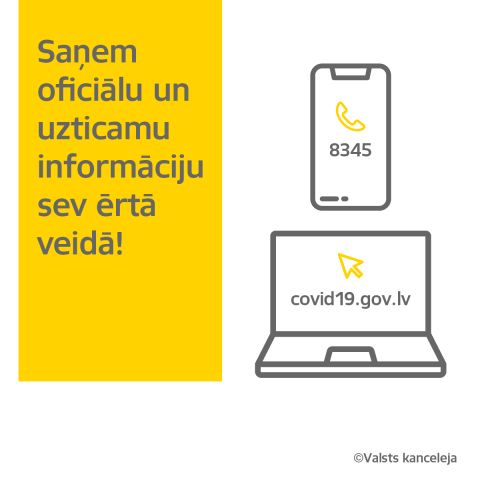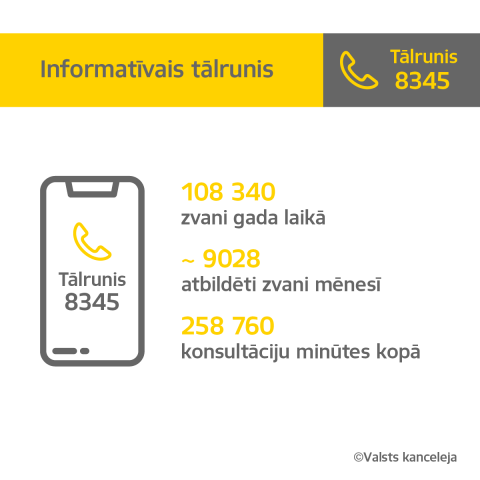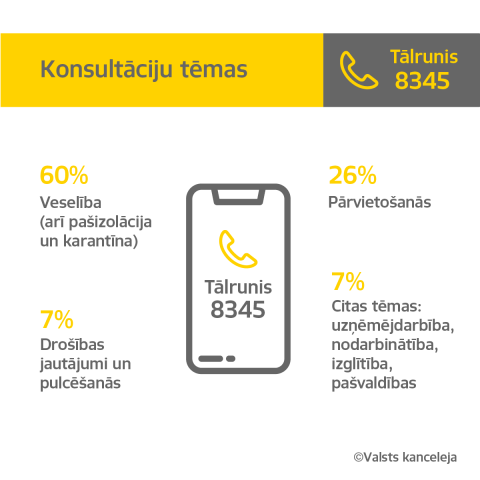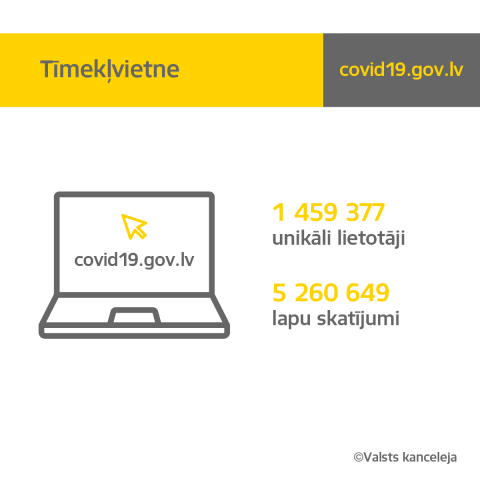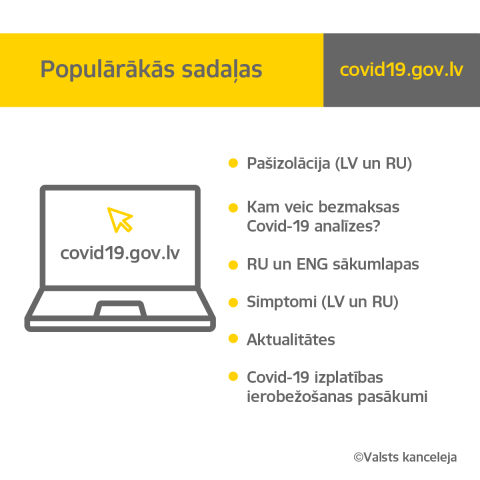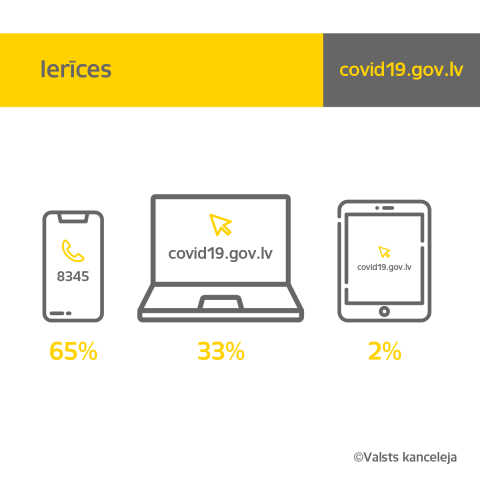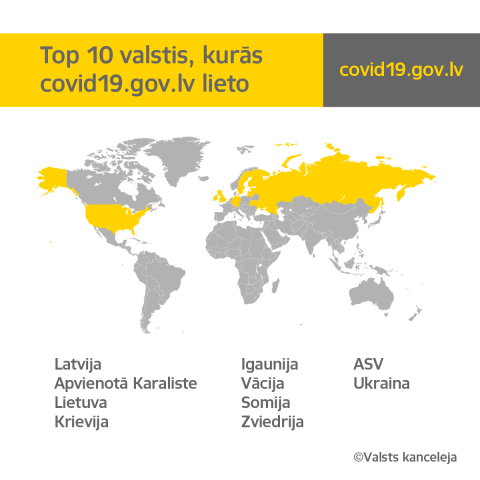Today marks one year since the launch of website covid19.gov.lv and single helpline 8345
Last update 05.03.2025
The number of unique users who have visited the single website covid19.gov.lv, which was developed a year ago, amounts to 1.46 million. The single helpline 8345 has been operating for as long, with operators providing more than 100 thousand consultations. The two communication channels are provided daily by the State Chancellery and are aimed at providing up-to-date information on the spread of Covid-19, safety measures, available support and other issues.
Single official website covid19.gov.lv
The State Chancellery’s website covid19.gov.lv has been developed to provide true, comprehensive and operational information on the spread of Covid-19, up-to-date safety measures, support mechanisms, solutions to safe social life, vaccination, learning process, travelling, use of the funding allocated to mitigate the effects of the pandemic, contacts and other current developments. In addition, the sections indicate the sources for more detailed information about the specific area or question. The content of the website is available in Latvian, English and Russian.
The website was developed within a very short time period and was made public on 25 March 2020. It has 1 459 377 unique visitors who have viewed the page content 5 260 649 times. The average time spent on the website is 1 minute and 37 seconds. 75% of the website users are from Latvia, but it is also useful for those living abroad, for instance, in the United Kingdom, Germany, Finland, Sweden, the United States, Ukraine and neighbouring countries.
The most popular sections for both Latvian, English and Russian are about self-isolation, Covid-19 tests, symptoms and up-to-date safety measures. As regards the website in Latvian, the users have frequently viewed the information regarding current government decisions, statistics on the spread of Covid-19, as well contacts. Covid19.gov.lv is easy to use from mobile phones as evidenced by its users's habits: during the year, 65% of visitors have viewed the site directly on their mobile phones.
The covid19.gov.lv information is also available to users with visual disorders and reduced mobility – it is possible to switch view contrasts, increase text, move between sections with keyboards, and use screen reader programs. The State Chancellery ict continues to improve the functionality of Covid19.gov.lv in order to provide a user-friendly experience – work is ongoing on the development of the search engine.
It is recalled that the information on the website in Latvian is updated immediately (also in the evening and on holidays) after taking important decisions. In turn, the information in English and Russian is added on the following day after updating the Latvian version.
Single Covid-19 helpline 8345
Single helpline 8345 created by the State Chancellery in cooperation with Tet provides citizens with daily answers to questions on various Covid-19 related topics and forwards citizen's calls according to competence to one of the national authorities in cases where an in-depth clarification of the matter is required. Between 24 March 2020 and 22 March 2021, operators have answered 108 340 calls, with a total of 258 760 minutes spent in consultation.
The number of calls received by Covid-19 helpline 8435 has fluctuated by months, depending on the dynamics of morbidity rates and the introduction of new safety measures. Since the helpline was created, the number of calls has increased significantly from 4 500 calls in the initial months of operation to 14 450 calls in October 2020, when the spread of the infection was rapidly increasing and a mandatory registration for border crossings in covidpass.lv was introduced.
Since the launch of the single helpline, the knowledge and competence of operators has increased significantly on a wide range of issues of interest to citizens in the context of the Covid-19 pandemic. Tet operators regularly receive and use resources that are available and prepared by the public administration, and therefore they are able to answer questions themselves, thus significantly reducing the number of calls forwarded to public authorities, which in turn makes it easier for citizens to receive information. In the last three months, on average, only 5.5% of all calls have been forwarded.
